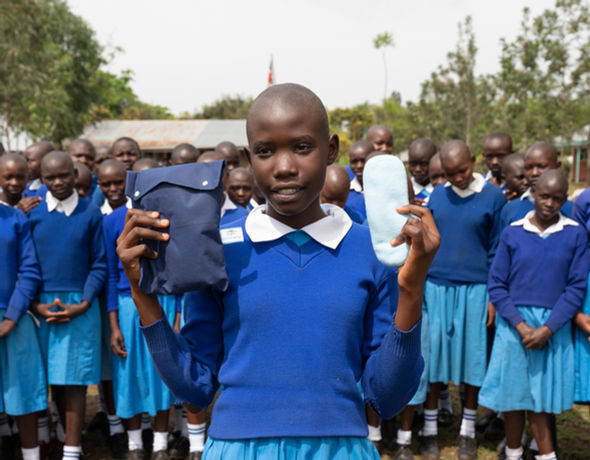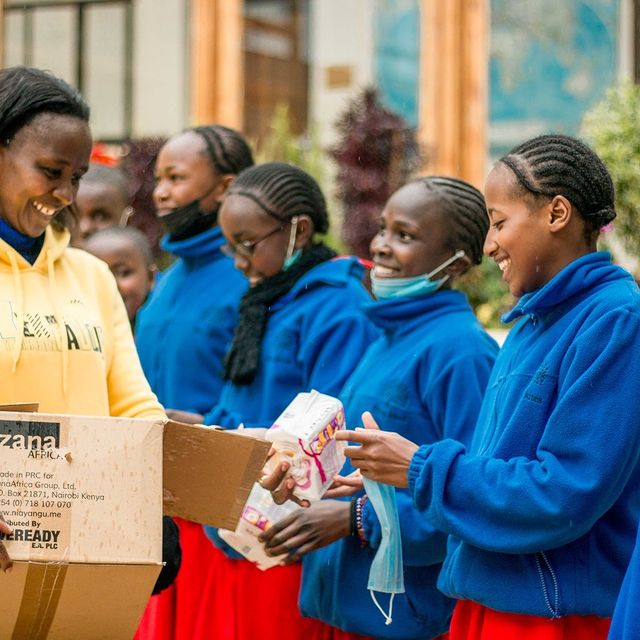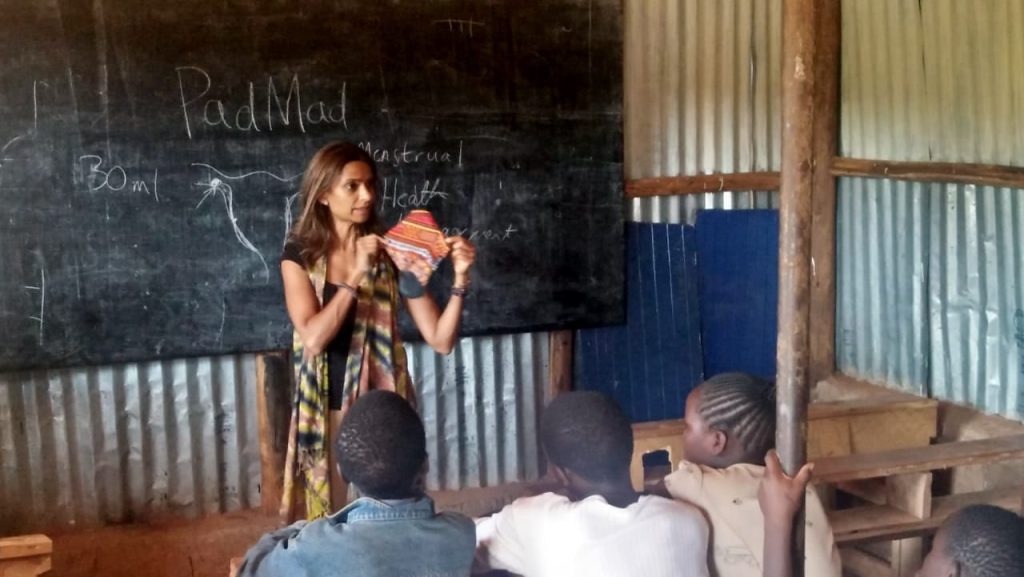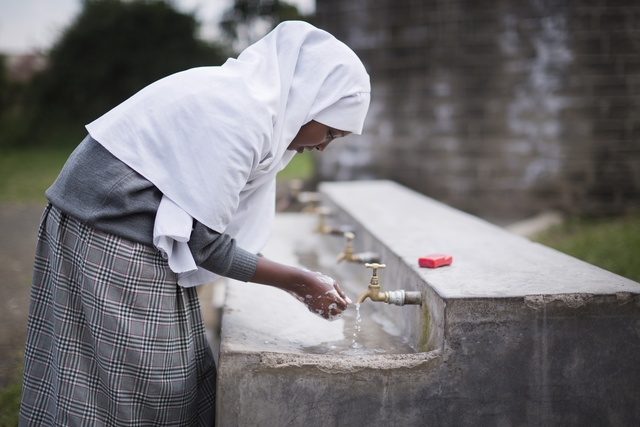Why is menstrual hygiene essential for women’s health, and why does the stigma surrounding it still persist?
These are questions that deserve our attention, especially in a world where women’s health and dignity are often compromised due to inadequate menstrual hygiene. The lack of awareness and the deep-rooted taboos around menstruation have serious implications for women’s physical and mental well-being.
In this article, we’ll explore the critical importance of menstrual hygiene for women’s health and the need to dismantle the stigma that hinders open discussion and access to necessary resources.
Also read:Period Poverty Projects: Unmasking the Global Crusade Against Menstrual Inequality
A Detailed Explanation of Menstrual Hygiene and Women’s Health
Understanding Menstrual Hygiene

Menstrual hygiene refers to the practices that women and girls follow to manage their periods safely and with dignity. This includes the use of clean menstrual products, access to private spaces to change and dispose of these products, and the ability to maintain proper hygiene during menstruation. Menstrual hygiene is not just about managing a natural biological process; it’s a vital part of ensuring the overall health and well-being of women and girls.
Proper menstrual hygiene can prevent infections, reduce the risk of reproductive tract diseases, and contribute to better health outcomes. However, in many parts of the world, menstrual hygiene is not given the attention it deserves, leading to significant health challenges.
The Health Impacts of Poor Menstrual Hygiene
Poor menstrual hygiene can have severe health consequences. When women and girls use unsafe or unhygienic materials during their periods, they risk infections such as bacterial vaginosis, urinary tract infections, and even reproductive tract infections. These infections can lead to more severe health problems, including infertility and complications during pregnancy.
Additionally, the lack of access to sanitary products forces many women to use rags, leaves, or even ashes as makeshift pads, increasing their vulnerability to infections. This not only affects their physical health but also their emotional well-being, as they may feel ashamed, dirty, or isolated during their periods.
Breaking the Stigma Around Menstruation
One of the biggest barriers to improving menstrual hygiene is the stigma surrounding menstruation. In many cultures, menstruation is seen as dirty or shameful, leading to secrecy and silence around the topic. This stigma prevents women and girls from seeking information, asking for help, or even purchasing sanitary products openly.
The stigma also extends to schools and workplaces, where women may face discrimination or embarrassment due to their menstrual status. In some cases, girls may skip school during their periods because they lack access to proper facilities or fear being teased by their peers. This not only affects their education but also perpetuates gender inequality.
The Role of Education in Promoting Menstrual Hygiene
Education plays a crucial role in breaking the stigma and promoting menstrual hygiene. Comprehensive menstrual education should be part of school curricula, ensuring that both boys and girls understand menstruation as a normal and healthy biological process. Educating boys is especially important in changing societal attitudes and creating supportive environments for women and girls.
In addition to school-based education, community outreach programs can help spread awareness about menstrual hygiene and dispel myths and taboos. These programs can also provide practical information on how to use and dispose of sanitary products safely, as well as the importance of maintaining hygiene during menstruation.
Access to Menstrual Products and Facilities
Access to affordable and safe menstrual products is a fundamental aspect of menstrual hygiene. Unfortunately, many women and girls, particularly in low-income regions, cannot afford sanitary products and must resort to unsafe alternatives. This is known as period poverty and is a significant barrier to maintaining menstrual hygiene.
Efforts to combat period poverty include providing free or subsidized sanitary products, improving access to clean water and sanitation facilities, and advocating for policies that support menstrual health. Governments, NGOs, and businesses all have a role to play in ensuring that women and girls have the resources they need to manage their periods safely and with dignity.

The Intersection of Menstrual Hygiene and Reproductive Health
Menstrual hygiene is closely linked to reproductive health. Maintaining proper menstrual hygiene helps prevent reproductive tract infections, which can have serious implications for a woman’s fertility and overall reproductive health. Inadequate menstrual hygiene can lead to conditions such as pelvic inflammatory disease (PID), which can cause infertility if left untreated.
Moreover, menstrual hygiene is also essential for managing conditions like endometriosis and polycystic ovary syndrome (PCOS), which affect a significant number of women worldwide. Women with these conditions may experience heavier or more painful periods, making it even more important to have access to proper menstrual products and hygiene practices.
How Cultural Norms Affect Menstrual Hygiene
Cultural norms and beliefs heavily influence how menstruation is perceived and managed in different societies. In some cultures, menstruating women are considered impure and are subjected to various restrictions, such as being banned from kitchens, temples, or even their own homes. These practices not only perpetuate the stigma but also undermine women’s dignity and health.
In societies where menstruation is taboo, women may be reluctant to discuss their menstrual health with healthcare providers, leading to untreated infections and other health issues. Changing these cultural norms requires a multi-faceted approach, including education, advocacy, and the involvement of community leaders.
The Role of Technology in Menstrual Hygiene
Technology is playing an increasingly important role in improving menstrual hygiene. Innovations such as menstrual tracking apps, reusable menstrual products, and online education platforms are helping women manage their periods more effectively. These technologies can provide women with the information and tools they need to maintain good menstrual hygiene, track their menstrual cycles, and seek medical advice when needed.
For instance, menstrual cups and reusable pads are gaining popularity as eco-friendly alternatives to disposable products. These options not only reduce waste but also provide a cost-effective solution for women, especially those in low-income regions.
Menstrual Hygiene and Gender Equality
Improving menstrual hygiene is essential for achieving gender equality. When women and girls are unable to manage their periods safely, they are often excluded from education, work, and social activities. This exclusion not only affects their personal development but also reinforces gender inequalities in society.
By promoting menstrual hygiene, we can empower women and girls to participate fully in all aspects of life, free from the constraints of stigma and inadequate resources. This empowerment is crucial for building more inclusive and equitable societies.
The Global Effort to Improve Menstrual Hygiene
There is a growing global movement to improve menstrual hygiene and break the stigma surrounding menstruation. Organizations like UNICEF, WaterAid, and Maji na Ufanisi are working tirelessly to provide education, access to sanitary products, and improved sanitation facilities to women and girls around the world. These efforts are essential for ensuring that all women and girls can manage their periods safely and with dignity.
Governments are also beginning to recognize the importance of menstrual hygiene, with some countries implementing policies to provide free sanitary products in schools and public places. These initiatives are a step in the right direction, but more needs to be done to reach all women and girls, especially those in marginalized communities.

How Maji Na Ufanisi is Helping
Maji na Ufanisi (Water and Development) is at the forefront of the fight to improve menstrual hygiene for women and girls in underprivileged communities. The organization focuses on providing access to clean water and sanitation facilities, which are critical for maintaining menstrual hygiene. By ensuring that women and girls have access to private, safe, and clean spaces to manage their periods, Maji na Ufanisi is helping to reduce the risk of infections and improve overall health outcomes.
Moreover, Maji na Ufanisi is actively involved in menstrual education programs that aim to break the stigma surrounding menstruation. These programs not only educate women and girls about safe menstrual practices but also engage men and boys in the conversation, fostering a supportive environment for menstrual health.
The organization also advocates for policy changes that support menstrual hygiene, including the provision of free or subsidized sanitary products. Through its holistic approach, Maji na Ufanisi is making a significant impact on the lives of women and girls, helping them manage their periods with dignity and confidence.
Breaking the stigma around menstruation and promoting menstrual hygiene is essential for improving women’s health and achieving gender equality. Menstrual hygiene is not just a matter of personal care; it’s a critical aspect of women’s overall health and well-being. By addressing the stigma, improving access to sanitary products, and providing comprehensive menstrual education, we can ensure that all women and girls can manage their periods safely and with dignity.
Maji na Ufanisi’s work in this area is a testament to the importance of community-based efforts to improve menstrual hygiene. As we continue to advocate for women’s health, let us remember that menstrual hygiene is a fundamental human right that must be upheld for all.
FAQs
- What is menstrual hygiene?
- Menstrual hygiene refers to the practices that women and girls follow to manage their periods safely and with dignity.
- Why is menstrual hygiene important for women’s health?
- Proper menstrual hygiene helps prevent infections and contributes to better reproductive health.
- What are the health risks of poor menstrual hygiene?
- Poor menstrual hygiene can lead to infections like bacterial vaginosis and urinary tract infections, which can have serious health implications.
- How does stigma affect menstrual hygiene?
- Stigma prevents open discussion about menstruation, leading to a lack of awareness and inadequate access to sanitary products.
- What can be done to improve menstrual hygiene?
- Providing education, improving access to sanitary products, and promoting cultural change are key to improving menstrual hygiene.
- What is period poverty?
- Period poverty refers to the lack of access to affordable and safe menstrual products.
- How does menstrual hygiene affect gender equality?
- Inadequate menstrual hygiene can exclude women and girls from education, work, and social activities, reinforcing gender inequalities.
- What role does education play in promoting menstrual hygiene?
- Education helps break the stigma around menstruation and provides women and girls with the information they need to manage their periods safely.
- How is Maji na Ufanisi helping improve menstrual hygiene?
- Maji na Ufanisi provides access to clean water and sanitation facilities and advocates for menstrual education and policy changes.
- What can individuals do to support menstrual hygiene initiatives?
- Individuals can support menstrual hygiene initiatives by advocating for policy changes, donating to organizations like Maji na Ufanisi, and promoting menstrual education in their communities.



